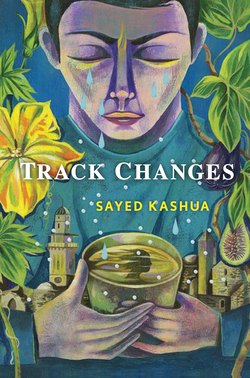Читать книгу Track Changes - Sayed Kashua - Страница 12
На сайте Литреса книга снята с продажи.
6
ОглавлениеWhat do I think about before I fall asleep?
Back in the day, when I’d have trouble getting to sleep, I’d imagine myself as a soldier, even though I’ve never been in an army and have never held a gun that isn’t a toy. I was clad in army green but didn’t know in whose ranks I was fighting. During those presleep, imaginary war games I manned a defensive position, usually guarding the house. The war always took place in the vicinity of the house, not far from the bed in which I slept. Actually, in my mind, I lay in a trench, covered in mud, trying to stop the advance of a faceless and nameless enemy, sticking small grenades in the treads of hulking tanks, scurrying from hideout to hideout in the neighborhood that I knew so well, employing to my advantage my perfect knowledge of the battlefield. Bullets whistled past my ears but never hit me, and every shot I fired found its mark.
When I was a kid, I defended my home in Tira; when I became a father, I defended our home in Jerusalem; but when I moved to Illinois, I wasn’t able to defend a thing. I didn’t know where to hide, where the forces were positioned, where the enemy assault would come from.
My attempts at lulling myself to sleep while imagining myself as a soldier defending the family home no longer worked. Back in the day I would emerge victorious from every battle or at least fall asleep while still maintaining the perimeter, the enemy unable to strike the home I was in. But ever since the move to Illinois I surrender before the battle has even begun, a surrender to the brigades of insomnia.
My mother and my older brother and his wife, whom I was meeting for the first time, shared a bench outside my father’s hospital room. My mother’s eyes were swollen from crying, and her sobbing intensified when she saw me. “Why didn’t you tell me you were coming?” she cried and seemed not to know if she was allowed to hug me.
“What are you doing here?” my older brother asked. “Why’d you come?”
“Stop it,” my mother ordered. “Not now, not in the hospital. He’s your brother. Enough.”
“You smelled death and came to take some of the remains?” my brother said. And Mom cried and begged in the name of Allah that this was not the time, that we are brothers.
“Enough,” my brother’s wife said, too, taking his hand.
“You want to make a scene in the hospital?”
“Go home,” my mother urged him and turned to his wife. “Please, take your husband home.”
“Let’s go,” his wife said, tugging his hand. “Let’s go home.”
When I first arrived at the hospital, my mother accompanied me to the room in the intensive care section of the cardiology ward, where my father’s shrunken body lay, hooked up to masks and wires, as a metallic rectangular machine filled and emptied his lungs at a predetermined rate. I didn’t know if I was allowed to approach him, touch him, hug him, or hold his hand as I’d seen in the movies. In the end I touched him gently, but he didn’t respond.
Mom filled me in on the medical details, which I did not fully understand. I managed to grasp that they’d taken him to the hospital due to weakness, vomiting, and intense back pain. And that at first they didn’t know what was wrong and simply wanted to monitor him and run a few tests, but during those first days his condition worsened and on the morning of my arrival he was stricken with sharp pains in his chest. An EKG showed he was having an acute heart attack, and he was taken to the operating room for a heart catheterization in two arteries or maybe it was veins. I’m not sure. My mother also said that in the interim the tests from before the heart attack started to come back, and they showed that my father has an advanced stage of lung cancer, which has already spread to the bones and the liver.
“How’s your wife? And the kids? I understand you already have two?”
“Three. A girl and two boys. They’re okay, they send regards.”
“How’d you find us?”
“I asked at information,” I told her, even though I knew she meant: Who told you? How did you know? Who are you even in touch with?
I didn’t tell her that my father, two days earlier, had sent me a short message over Skype, right after I’d accepted his friendship request. He only wrote, “I’m in the hospital,” but I knew right away it was his heart.
My mother encouraged me to go home, take a shower, eat, rest up after the long journey, but I insisted on staying by my father’s bed. After all, that was the reason I’d come, the reason I’d asked Palestine for permission to buy a plane ticket, explaining to her that the situation was grave and even lying and saying that I’d spoken to my father’s attending physician in the hospital, who said that if he were me he would come back immediately. She consented. She would have done so without the lie, too, allowing me to go over our budget and break our unwritten agreements, signed, over the years, in long silences.
I’ve come the whole way just to be by his side, I practically begged my mother, even though I knew she wasn’t sure if she ought to leave me with my father.
“My body’s still ticking on an American clock,” I told her, because I wanted her to go already. “Tomorrow, tomorrow morning I’ll come home,” I promised her, hoping I would manage to keep my promise.
